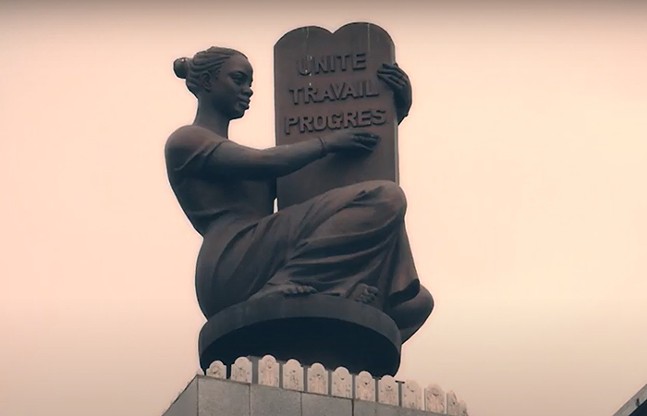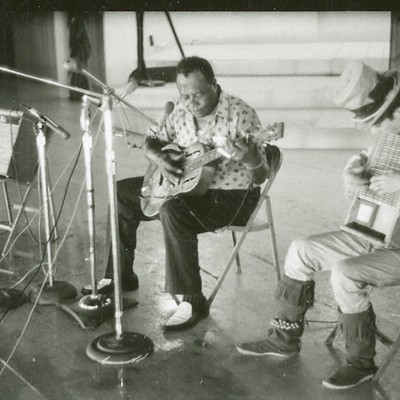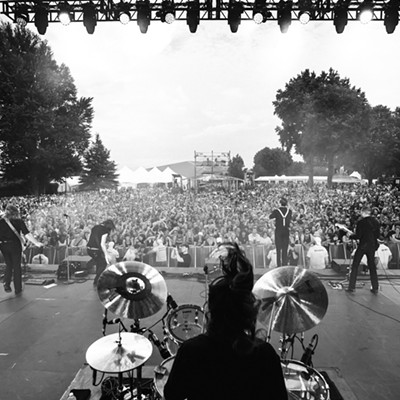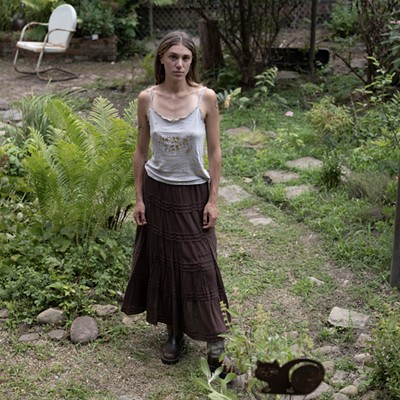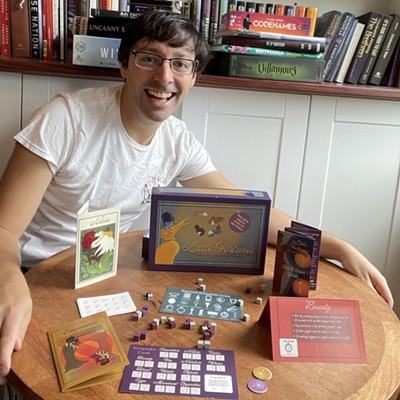Pitt exposes political violence in the Republic of Congo with film Keep Quiet or Die
[
{
"name": "Local Action Unit",
"component": "24929589",
"insertPoint": "3",
"requiredCountToDisplay": "1"
}
]
Among French-speaking areas of Africa, the Republic of Congo was the first to have a TV channel, but filmmaking in Congo remains nonexistent for a simple reason — filmmakers don’t want to end up in jail.
Keep Quiet or Die, a documentary from Congolese filmmaker Aunel Arneth, covers the government corruption and violent retaliation against citizens in the Congo during a controversial 2015 referendum vote, which proposed an amendment to the constitution that would allow President Sassou Nguesso to run for a third consecutive term.
The film focuses on three journalists who faced retaliation because of their releasing work critical of the government. One of them, Bruno Jacquet Ossebi, died under mysterious circumstances days after he released his findings on the Congolese government’s financial mishandlings.
This kind of political silencing in the Congo is what he aims to uncover in his movies, Arneth says.
“A lot of the journalists, filmmakers, or political activists have a choice,” says Arneth. “They speak up, and if they do, they usually get killed for it.”
The film is being screened on Fri., Sept. 16 at the University of Pittsburgh as a part of Celebrate Africa, a conference held by Pitt’s Center for African Studies to celebrate African culture and discuss contemporary issues. Arneth, who is currently a visiting scholar at Pitt, will be present at the screening to answer questions from the audience.
Those unable to attend the screening can also watch the film for free online at the French-language website Agir ensemble pour les droits humans. The film is streaming with English subtitles.
Watch the trailer for Keep Quiet or Die below:
Pittsburgh City Paper interviewed Arneth with his wife Nuptia Makaya, who served as a French interpreter. “I started making films because there is a big silence on a lot of the political crimes in my country,” Arneth says. “The goal is to shine a light on the crimes and inequality in the Congo.”
Before he transitioned into filmmaking, Arneth worked as a reporter for AFRICA24, a pan-African news channel based in Paris. In 2015, after the network refused to cover a Congolese government bombing of a village in Arneth’s hometown region of Congo, he resigned. Shortly afterward, he formed Cinema for Peace and Democracy, a film production company with the goal of exposing corruption in the Congo.
During his work on Keep Quiet or Die, Arneth says his work brought him under the suspicion of the Congolese government. While Arneth gave talks in the United States about his film, intelligence services in Congo and Senegal issued arrest warrants for him. Arneth understood the seriousness of that move — he says he had been kidnapped once by agents of the Congo Assembly in Senegal — so, instead of returning to Africa, Arneth applied for political asylum in August 2020.
Arneth moved to the U.S. later that year and obtained a position as an artist-in-residence at the City of Asylum in Pittsburgh.
Since living in Pittsburgh, Arneth says the residency has allowed him the freedom and space to start work on a new project — and for opportunities like Celebrate Africa. Discussions about government corruption without fear of retaliation are not commonplace in Congo, so he expresses gratitude for being able to share his work with interested scholars and students.
“Americans are very sensitive to anything that relates to democracy, freedom, and human rights,” Arneth says. ”It’s good that it's happening in an academic environment where there can be discussion and diversity to actually engage in the talk.”
Keep Quiet or Die. 2-3:30 p.m. Fri., Sept. 16. University of Pittsburgh. 1500 Posvar Hall, Oakland. Free. ucis.pitt.edu/africa
Keep Quiet or Die, a documentary from Congolese filmmaker Aunel Arneth, covers the government corruption and violent retaliation against citizens in the Congo during a controversial 2015 referendum vote, which proposed an amendment to the constitution that would allow President Sassou Nguesso to run for a third consecutive term.
The film focuses on three journalists who faced retaliation because of their releasing work critical of the government. One of them, Bruno Jacquet Ossebi, died under mysterious circumstances days after he released his findings on the Congolese government’s financial mishandlings.
This kind of political silencing in the Congo is what he aims to uncover in his movies, Arneth says.
“A lot of the journalists, filmmakers, or political activists have a choice,” says Arneth. “They speak up, and if they do, they usually get killed for it.”
The film is being screened on Fri., Sept. 16 at the University of Pittsburgh as a part of Celebrate Africa, a conference held by Pitt’s Center for African Studies to celebrate African culture and discuss contemporary issues. Arneth, who is currently a visiting scholar at Pitt, will be present at the screening to answer questions from the audience.
Those unable to attend the screening can also watch the film for free online at the French-language website Agir ensemble pour les droits humans. The film is streaming with English subtitles.
Watch the trailer for Keep Quiet or Die below:
Pittsburgh City Paper interviewed Arneth with his wife Nuptia Makaya, who served as a French interpreter. “I started making films because there is a big silence on a lot of the political crimes in my country,” Arneth says. “The goal is to shine a light on the crimes and inequality in the Congo.”
Before he transitioned into filmmaking, Arneth worked as a reporter for AFRICA24, a pan-African news channel based in Paris. In 2015, after the network refused to cover a Congolese government bombing of a village in Arneth’s hometown region of Congo, he resigned. Shortly afterward, he formed Cinema for Peace and Democracy, a film production company with the goal of exposing corruption in the Congo.
During his work on Keep Quiet or Die, Arneth says his work brought him under the suspicion of the Congolese government. While Arneth gave talks in the United States about his film, intelligence services in Congo and Senegal issued arrest warrants for him. Arneth understood the seriousness of that move — he says he had been kidnapped once by agents of the Congo Assembly in Senegal — so, instead of returning to Africa, Arneth applied for political asylum in August 2020.
Arneth moved to the U.S. later that year and obtained a position as an artist-in-residence at the City of Asylum in Pittsburgh.
Since living in Pittsburgh, Arneth says the residency has allowed him the freedom and space to start work on a new project — and for opportunities like Celebrate Africa. Discussions about government corruption without fear of retaliation are not commonplace in Congo, so he expresses gratitude for being able to share his work with interested scholars and students.
“Americans are very sensitive to anything that relates to democracy, freedom, and human rights,” Arneth says. ”It’s good that it's happening in an academic environment where there can be discussion and diversity to actually engage in the talk.”
Keep Quiet or Die. 2-3:30 p.m. Fri., Sept. 16. University of Pittsburgh. 1500 Posvar Hall, Oakland. Free. ucis.pitt.edu/africa

